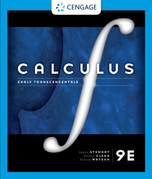?Assume that all the given functions have continuous second-order partial derivatives.If
Chapter 12, Problem 55(choose chapter or problem)
Assume that all the given functions have continuous second-order partial derivatives.
If \(z=f(x, y)\), where \(x=r \cos \theta\), and \(y=r \sin \theta\), show that
\(\frac{\partial^{2} z}{\partial x^{2}}+\frac{\partial^{2} z}{\partial y^{2}}=\frac{\partial^{2} z}{\partial r^{2}}+\frac{1}{r^{2}} \frac{\partial^{2} z}{\partial \theta^{2}}+\frac{1}{r} \frac{\partial z}{\partial r}\)
Equation Transcription:
Text Transcription:
z=f(x,y)
x=r cos theta
y=r sin theta
partial^2 z/partial x^2+partial^2 z/partial y^2=partial^2 z/partial r^2+1/r^2 partial^2 z/partial theta^2+1/r partial z/partial r
Unfortunately, we don't have that question answered yet. But you can get it answered in just 5 hours by Logging in or Becoming a subscriber.
Becoming a subscriber
Or look for another answer
